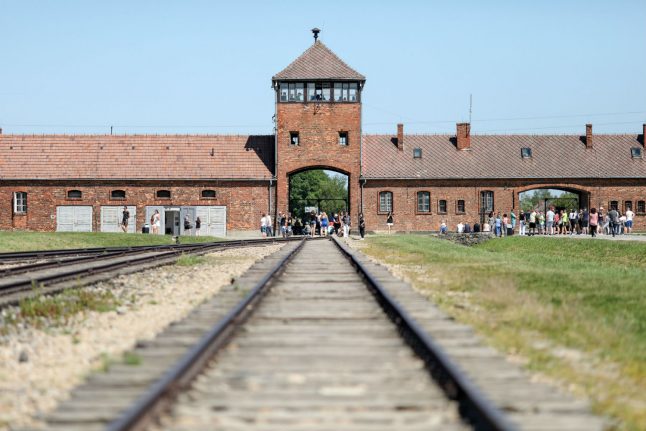Merkel will be only the third chancellor after Helmut Schmidt and Helmut Kohl to travel to the camp installed by the Nazis in then occupied Poland during World War II.
At Auschwitz, she will hold a minute of silence at the so-called Black Wall, where inmates were executed by Third Reich soldiers.
She will then make a speech at the Birkenau part of the camp, which was where the Nazis erected most of the machinery of mass extermination, including the gas chambers.
Polish Prime Minister Mateusz Morawiecki will attend while the chancellor will also lay a wreath.
Merkel's visit comes at the invitation of the Auschwitz-Birkenau Foundation, which is commemorating 10 years of its founding.
READ ALSO: 'Rewrites history': Netflix to fix Holocaust documentary following complaints
On the eve of her trip, she and premiers of Germany's 16 states, are due to confirm €60 million in funding for the foundation.
With one million Jews killed there between 1940 to 1945, the camp has become a symbol of Adolf Hitler's genocide of European Jews.
More than 100,000 other people also perished there, including non-Jewish Poles, Roma, Soviet prisoners of war and anti-Nazi resistance fighters.
Russian soldiers liberated Auschwitz on January 27th, 1945.




 Please whitelist us to continue reading.
Please whitelist us to continue reading.
Member comments